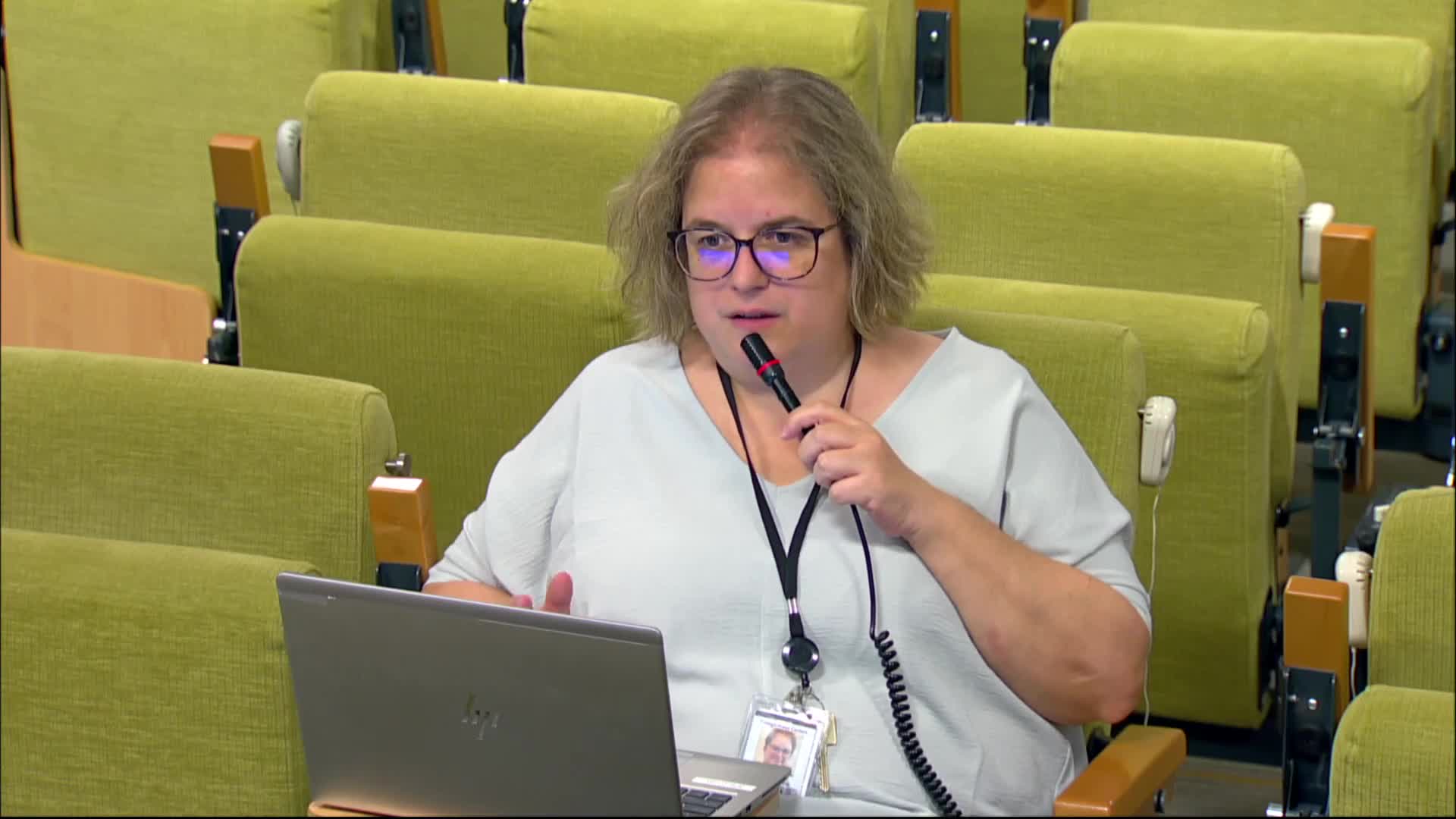UNICEF Reports 97 Trucks Deliver Aid Including Infant Food to Gaza
August 03, 2025 | United Nations, Federal
This article was created by AI summarizing key points discussed. AI makes mistakes, so for full details and context, please refer to the video of the full meeting. Please report any errors so we can fix them. Report an error »

The ongoing humanitarian crisis in Gaza has reached alarming levels, with UNICEF reporting that approximately 320,000 children are suffering from acute malnutrition. During a recent government meeting, officials discussed the urgent need for increased aid to address this dire situation.
The meeting highlighted that while countries are airdropping aid into Gaza, these efforts cannot match the scale of assistance that ground convoys can provide. Experts emphasized the necessity of restoring aid flows to around 500 trucks per day, which would include both humanitarian and commercial supplies. This increase is crucial for improving food availability and stabilizing market prices, which have seen fluctuations due to the ongoing conflict.
For instance, the price of wheat flour has significantly decreased from around 100-150 new Israeli shekels per kilo to between 35-45 shekels, indicating that even slight increases in aid can have a positive impact on food accessibility. However, much more needs to be done to ensure that children receive the specialized nutritional support they require for recovery.
Children suffering from malnutrition can recover physically if they have access to therapeutic foods and proper nutrition for their mothers. However, the long-term effects of malnutrition, such as emotional distress and developmental issues, can worsen if the situation persists. The need for a comprehensive approach that includes clean water and sanitation was also stressed, as these factors are essential for overall health and nutrition.
In response to concerns about the availability of infant formula, officials confirmed that there are no restrictions on its entry into Gaza. Recent efforts have seen 97 trucks delivering essential supplies, including infant feeds and sanitation kits, into the region. The focus remains on ensuring that these supplies reach the most vulnerable populations effectively and efficiently.
As the situation in Gaza continues to evolve, the need for a coordinated and multifaceted response remains critical to safeguard the health and well-being of its children and families. The community's resilience is being tested, and the international community's support is vital in addressing these urgent humanitarian needs.
The meeting highlighted that while countries are airdropping aid into Gaza, these efforts cannot match the scale of assistance that ground convoys can provide. Experts emphasized the necessity of restoring aid flows to around 500 trucks per day, which would include both humanitarian and commercial supplies. This increase is crucial for improving food availability and stabilizing market prices, which have seen fluctuations due to the ongoing conflict.
For instance, the price of wheat flour has significantly decreased from around 100-150 new Israeli shekels per kilo to between 35-45 shekels, indicating that even slight increases in aid can have a positive impact on food accessibility. However, much more needs to be done to ensure that children receive the specialized nutritional support they require for recovery.
Children suffering from malnutrition can recover physically if they have access to therapeutic foods and proper nutrition for their mothers. However, the long-term effects of malnutrition, such as emotional distress and developmental issues, can worsen if the situation persists. The need for a comprehensive approach that includes clean water and sanitation was also stressed, as these factors are essential for overall health and nutrition.
In response to concerns about the availability of infant formula, officials confirmed that there are no restrictions on its entry into Gaza. Recent efforts have seen 97 trucks delivering essential supplies, including infant feeds and sanitation kits, into the region. The focus remains on ensuring that these supplies reach the most vulnerable populations effectively and efficiently.
As the situation in Gaza continues to evolve, the need for a coordinated and multifaceted response remains critical to safeguard the health and well-being of its children and families. The community's resilience is being tested, and the international community's support is vital in addressing these urgent humanitarian needs.
View full meeting
This article is based on a recent meeting—watch the full video and explore the complete transcript for deeper insights into the discussion.
View full meeting